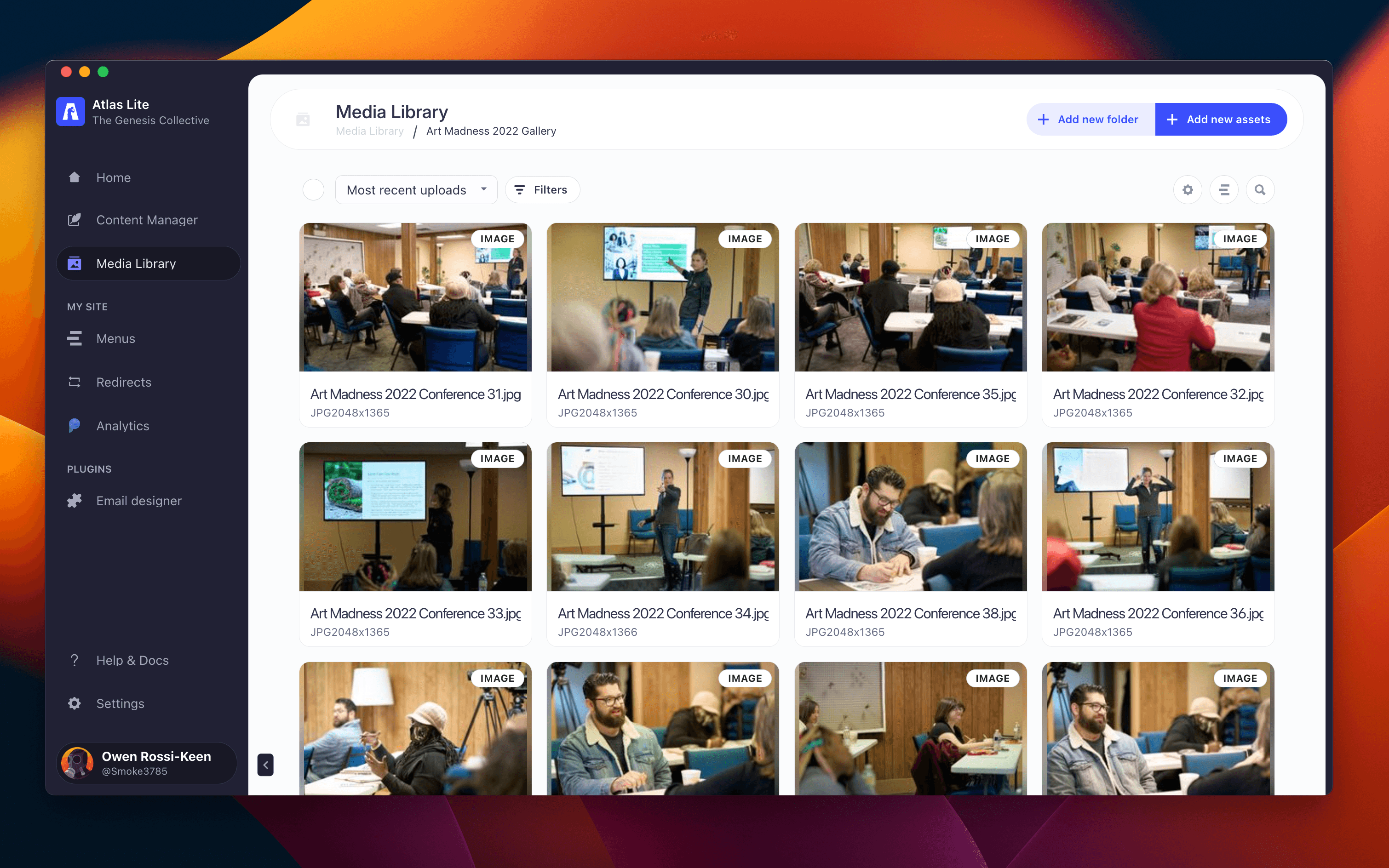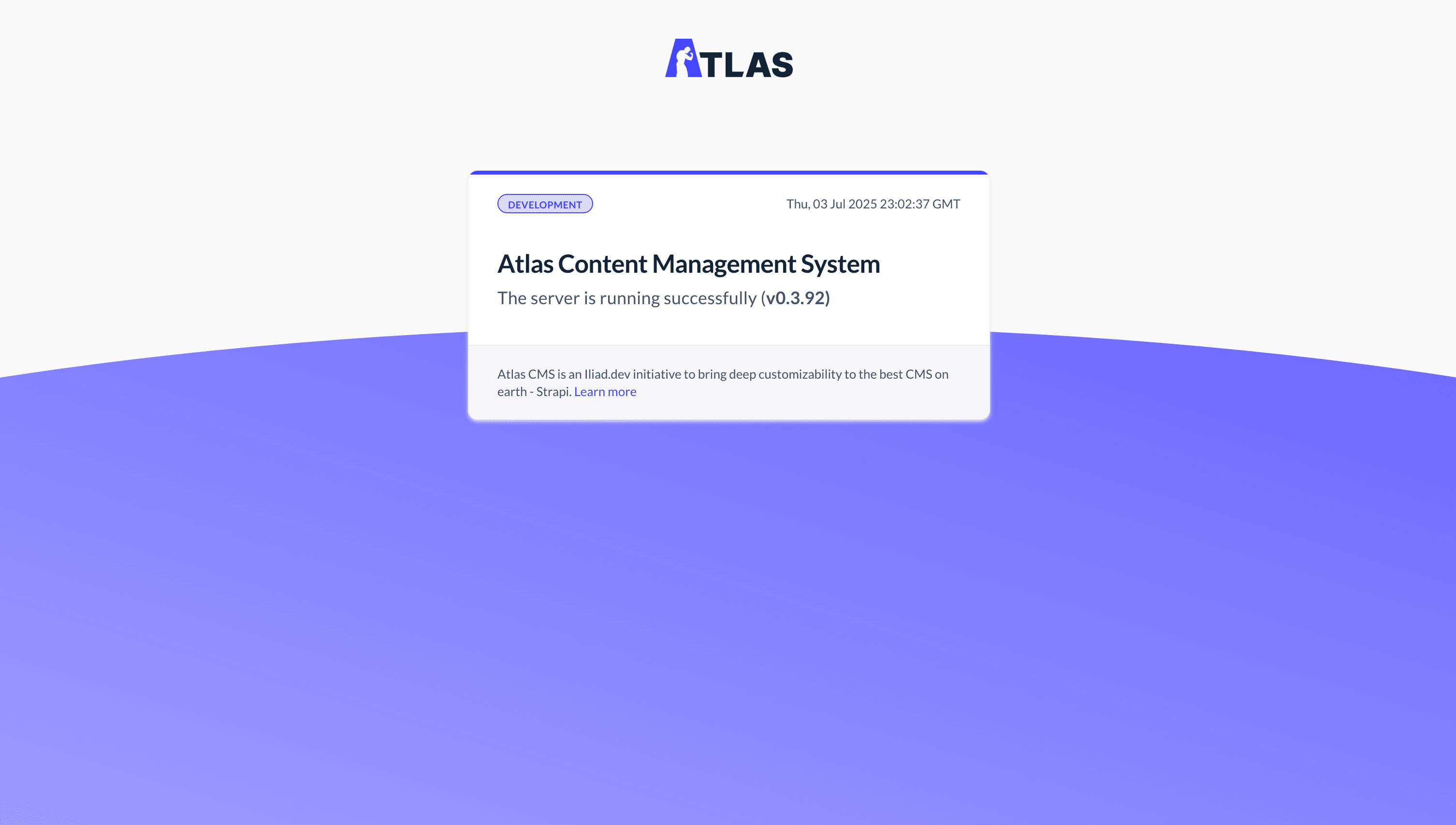

Atlas CMS
Bridging the gap between developers and users.
Atlas is a toolkit for developers and a gift to end users. Built as a desktop application on top of Strapi, it provides deep admin panel customization alongside substantial UX improvements that work immediately.
Strapi's Problem
Every developer who has deployed Strapi for a client knows the pattern: you build a powerful backend, then spend weeks walking clients through the admin panel's complexity.
When users open Strapi for the first time, they're met with a sea of nested boxes, fields, and menus. Explaining to your client that this is good, actually ("the content editor is a visual abstraction on top of a relational database ☝️🤓") is never a winning strategy. Strapi's UI is robust but terribly unintuitive, and surprisingly provides very limited customization options.
Why not build your own admin panel?
Strapi shines because everything is done by default. I can create a content type and have a database table, admin panel page, REST API, etc. done in 30 seconds. Under tight deadlines, this is invaluable.
But once you've built your MVP and want to go deeper, Strapi provides no options. This forces an impossible choice: MVP tomorrow and MVP in a year, or MVP in a month and full product in a year? Most client feature requests should require minor adjustments to defaults, not full ejection from Strapi's ecosystem.
The Solution: "Done by Default" Philosophy
Atlas maintains useful default implementations for all Strapi features (with improvements), then opens them up for extension and replacement. You get all the benefits of Strapi without being locked into its default UI/UX.

Technical Innovations
Admin Panel Overhaul
- Strategic Focus - Based on two years of client feedback on Strapi v4 pain points
- Modular UI components - extend, replace, or customize per client
- Visual improvements and reduced layout shift
- Simplified role management that non-technical users understand
- Reduced cognitive load by selectively exposing features based on user roles
Performance Architecture
- Aggressive caching across API responses, media assets, and admin routes ¹
- Link prefetching for near-instant navigation ¹
- Optimized API calls with debounced batching and refactored query logic ¹
- Media optimization pipeline with automatic WebP/AVIF conversion and blur hash placeholders
- React refactors to eliminate state abuse and performance bottlenecks
Multi-Tenant Functionality
- Tenant-scoped admin instances with isolated content and user access
- Scope Inheritance multi-tenant deployments can all be access with the credentials of their super-instance, but not the other way around.
- Role-based permissions with tenant boundaries
¹Strapi core plugins must be incrementally enhanced with these features, so coverage is not yet complete.
Developer Experience
Atlas maintains Strapi's great developer experience while expanding developer agency:
- Use your own components or extend ours
- Full compatibility with existing Strapi plugins ²
- Strapi design system is replaced before plugins are ever registered, meaning that all Strapi plugins benefit from stylistic improvements.
- No proprietary lock-in — it's still Strapi underneath
- Incrementally excising Strapi Design System
² With the caveat that some advanced features can't be monkey patched, so an atlas-specific refactor would be necessary to benefit from all features.
Code-first DX improvements
Atlas includes utilities to streamline working with Strapi in the IDE. Atlas factory functions provide intellisense on Strapi conventions so you don't need to scurry back to the documentation every two minutes. Additionally, using these will register your plugin/module to the Strapi type registry.

Additional Feature Highlights
- AI integration with site-specific LLMs trained on client content
- Search Engine Indexing of content type, menu options, and more.
- Email Template Designer for newsletters and campaigns
- First-class rich text editor for content-types like blogs, recipes, articles
- SEO and analytics components with custom functionality
- Live Site Preview for Next.js sites


Why This Matters
Atlas turns Strapi deployments from high-maintenance client relationships into set-and-forget solutions. You get developer control in the long run, with an interface clients can use independently from day one.
The result: Faster development, happier clients, and scalable projects without future-proofing anxiety.

Project Development

Loading project board...


Need a site just like this?
Iliad specializes in large-scale websites to fit the needs of your business, no matter how precise.














